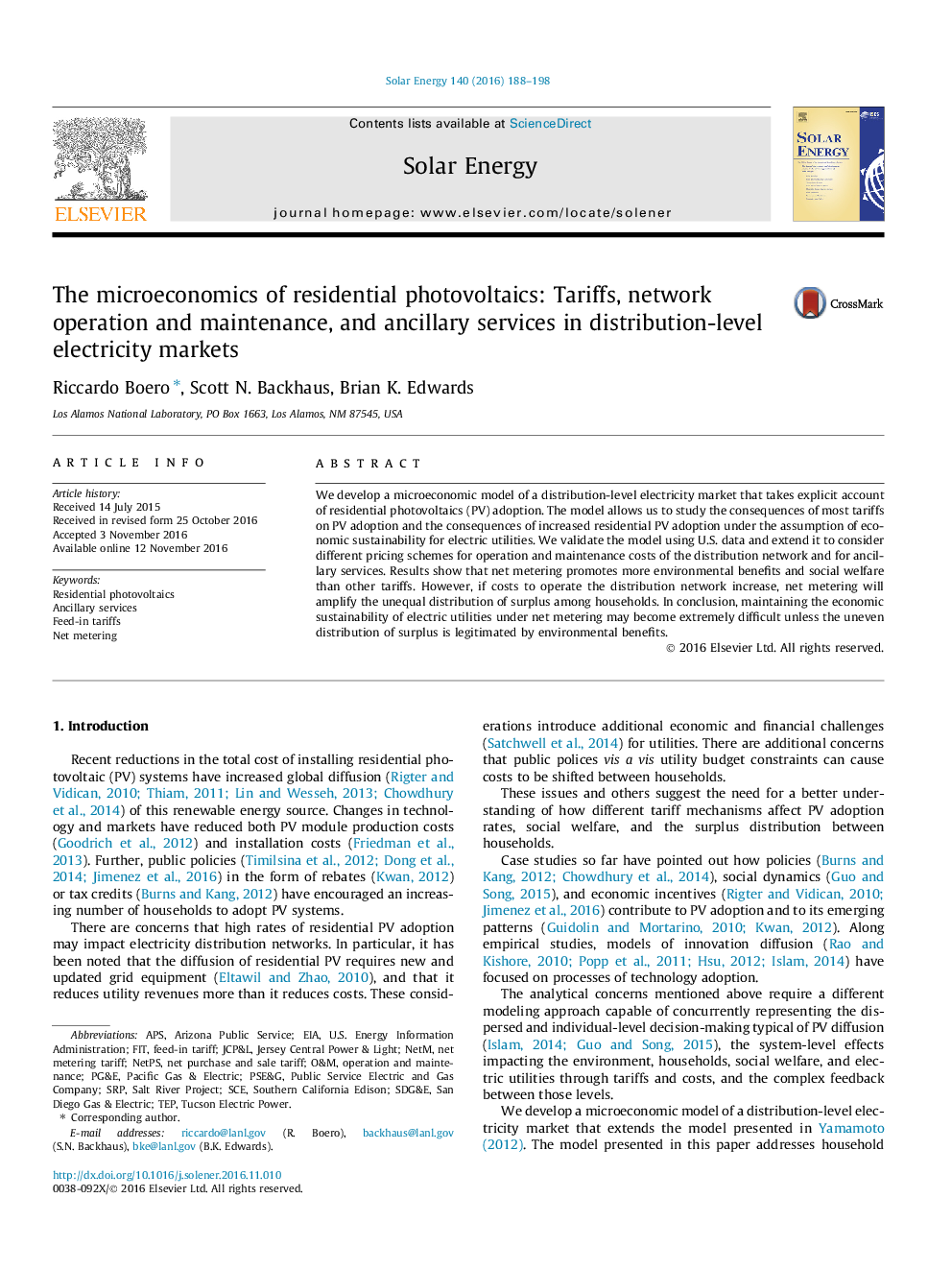| Article ID | Journal | Published Year | Pages | File Type |
|---|---|---|---|---|
| 5451032 | Solar Energy | 2016 | 11 Pages |
Abstract
We develop a microeconomic model of a distribution-level electricity market that takes explicit account of residential photovoltaics (PV) adoption. The model allows us to study the consequences of most tariffs on PV adoption and the consequences of increased residential PV adoption under the assumption of economic sustainability for electric utilities. We validate the model using U.S. data and extend it to consider different pricing schemes for operation and maintenance costs of the distribution network and for ancillary services. Results show that net metering promotes more environmental benefits and social welfare than other tariffs. However, if costs to operate the distribution network increase, net metering will amplify the unequal distribution of surplus among households. In conclusion, maintaining the economic sustainability of electric utilities under net metering may become extremely difficult unless the uneven distribution of surplus is legitimated by environmental benefits.
Keywords
Related Topics
Physical Sciences and Engineering
Energy
Renewable Energy, Sustainability and the Environment
Authors
Riccardo Boero, Scott N. Backhaus, Brian K. Edwards,
